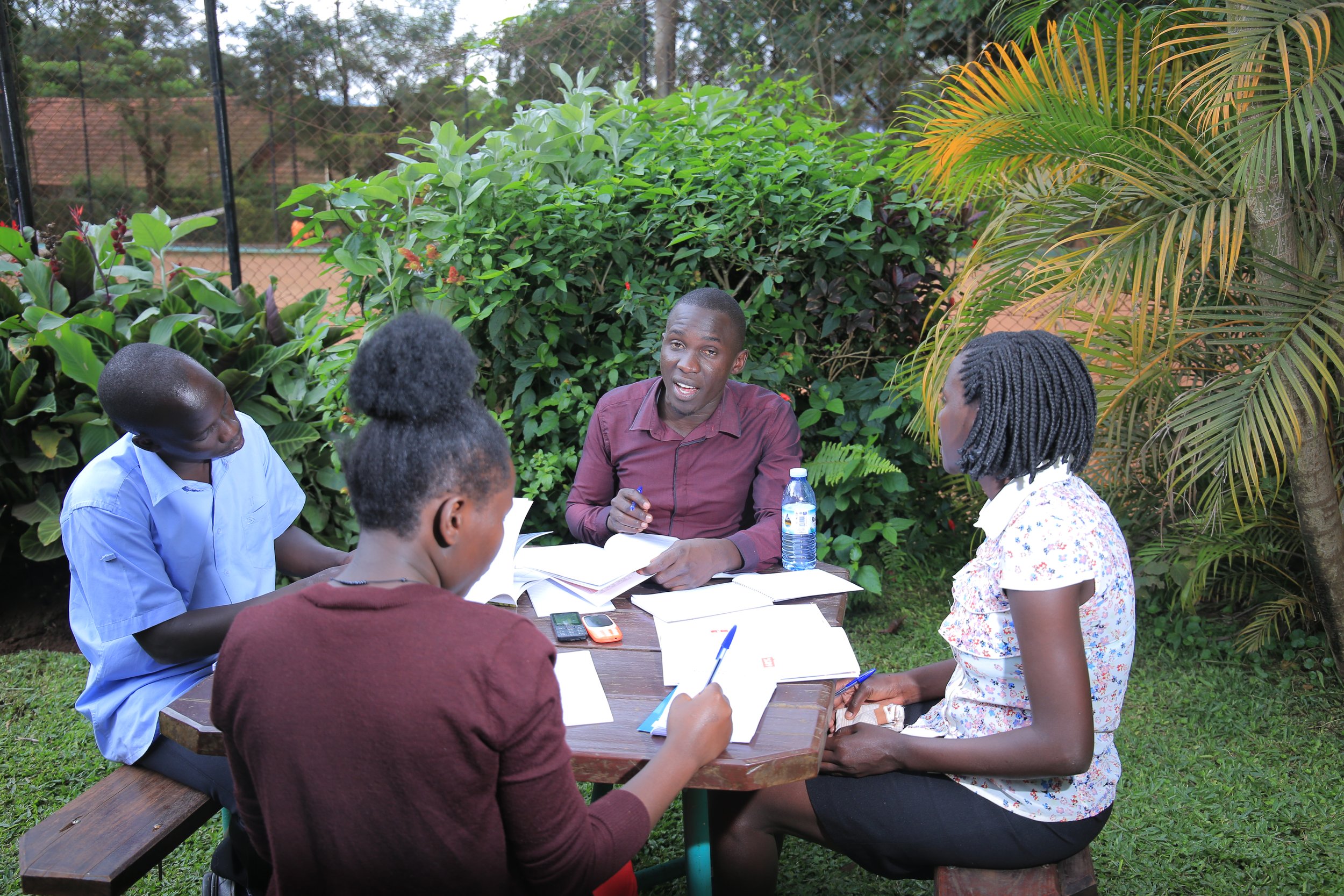
OUR WORK
We are building a supportive community for care-experienced individuals by providing holistic support, fostering leadership, prioritizing mental well-being, and creating opportunities for connection, growth, and advocacy
The Reality
For many care-experienced individuals, the transition from institutional care to independent living is filled with uncertainty and hardship. Without strong family support systems, many struggle to access education, employment, stable housing, and essential mental health services. The lack of structured transition programs leaves care leavers vulnerable to social isolation, economic hardship, and emotional distress. Without meaningful support, they face significant barriers to building stable, fulfilling lives.
The wellbeing Champions
In Uganda, where mental health receives only 1% of the national health budget, an innovative, peer-led initiative supported by Grand Challenges Canada is transforming mental health support for vulnerable youth by training care-experienced individuals as Well-being Champions, equipping them to provide psychosocial support to 1,170 young people through an accessible video series and guidebook, improving mental health literacy, resilience, and well-being while enabling social workers and youth-serving professionals to adopt trauma-informed approaches, ultimately fostering the reintegration of children from institutional care into families and communities in a dignified and meaningful way.
Strengthening the Social Service Workforce for Family-Based Care in Uganda
The Strengthening the Social Service Workforce for Family-Based Care project is a two-year project implemented and managed by the Global Social Service Workforce Alliance with technical support from consultants from Child Frontiers and supported by a grant from the Martin James Foundation. Implemented in Brazil, India and Uganda, it aims to learn from, record and amplify the knowledge and lived experience of youth and children with lived experience of care, their family members, and of social service workers, to develop a range of training and advocacy tools that will strengthen the social service workforce in support of family-based care.
Piloting mental health peer support for young people in Uganda
We partnered with Child’s i Foundation, final year social work students from Makerere University and No Limit Generation to develop a tool kit that can be used online or in person, to address a number of areas affecting youth in the community and young adults with lived experience of institutional care.
The innovation, supported by Grand Challenges Canada, is a youth-led, accessible video series with an accompanying guidebook designed to identify, address and support the healing journey for children, young people and youth in Uganda.
It is designed to provide families, social workers, and youth-serving organisations, including students of social work with the tools to start important, non judgmental conversations about Mental health and wellbeing.
RESIDENTIAL CARE TRANSITION MESSAGING
The Care Leaver Experience
The Care Leavers experience Report presents a comprehensive analysis of the experiences of young people who have transitioned from residential care in Uganda. Conducted through peer-led participatory research, the report captures firsthand accounts of care leavers, offering valuable insights into the challenges they face before, during, and after their time in institutional care.
The study, facilitated by the Uganda Care Leavers (UCL) Project in collaboration with Alternative Care Initiatives (ACI) and BULA, engaged care leavers through structured workshops and surveys across various regions. It explores key themes such as:
Understanding the circumstances that lead children into institutional care.
Examining the quality of care, relationships, and preparation for independence.
Assessing aftercare support, reintegration challenges, and long-term well-being.
The report highlights critical gaps in the child protection system and provides evidence-based recommendations to inform policy and practice. By amplifying the voices of care-experienced individuals, it advocates for family- and community-based care solutions, ensuring that all children grow up in safe, supportive, and nurturing environments.
WHAT WE DO
UCL activities include: creation of a network of Uganda care leavers that enables members to provide support to each other through shared experiences and mutual understanding; resulting in a community with a common identity. This is facilitated through social media and regional meetings with other social support services.
Identification of care leaver champions and assisting them mobilise other care leavers.
Conducting research that enables care leavers to inform and influence government policy and donor attitudes through advocating for changes to the care system in Uganda.
UCL advocates for: donors that support institutional care in Uganda to inform themselves of the harm done by long-term residential care and to re-direct their existing support for children into reunification and social support programmes.
Managers of existing residential care facilities to inform the children in their care, and those who have recently left, of the support offered by UCL.
NGOs operating in Uganda to include awareness in their programmes and services of the unique problems faced by care leavers. Government policy-makers to include recognition of society’s duty towards care leavers and include provision for them in service design, especially because of the increase in the numbers of care leavers as Uganda deinstitutionalises its child care system.


